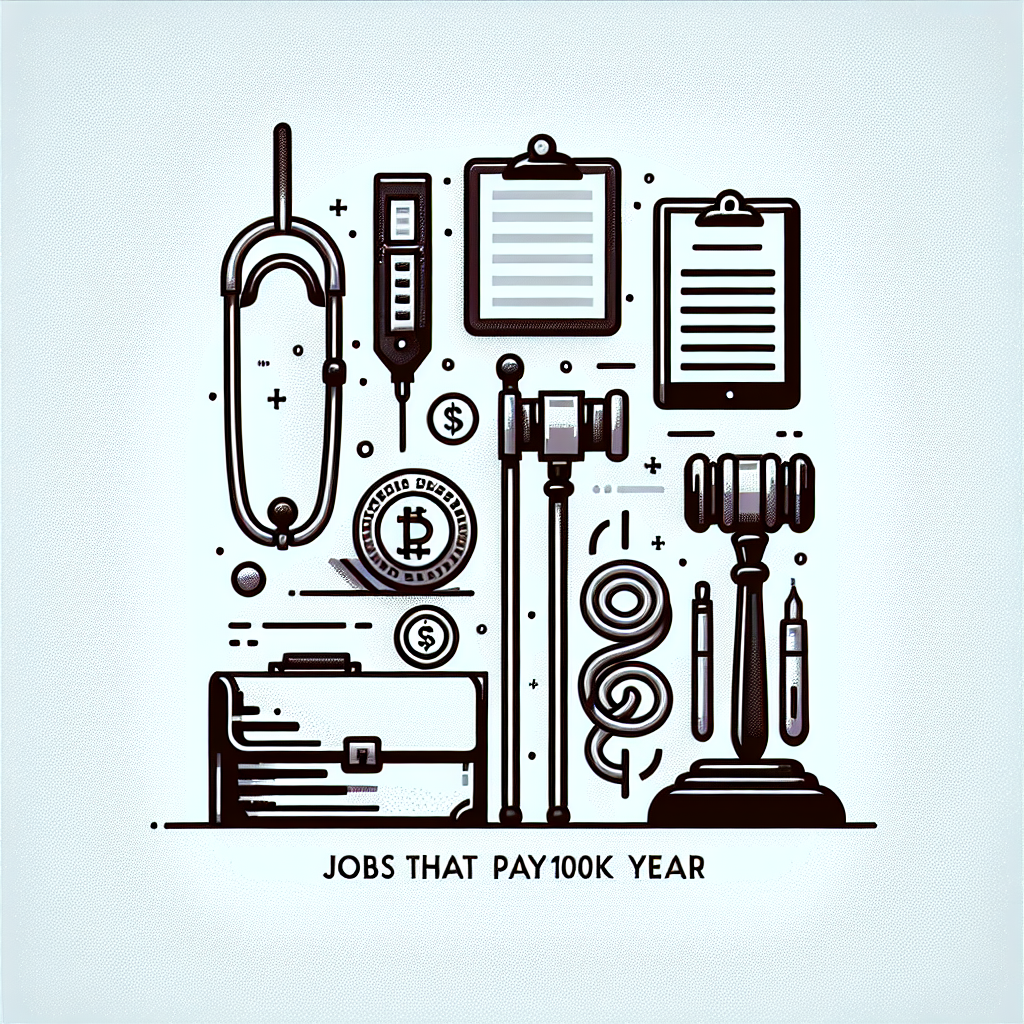Many professionals aim for high-earning roles, and understanding which careers reliably reach six figures is essential for planning. Jobs That Pay 100K A Year: The Ultimate Guide offers a practical look at occupations that commonly clear the $100,000 mark, the education and experience they typically require, and realistic steps you can take to reach those salary levels.
Common high-paying career tracks
Certain industries and roles have a higher concentration of six-figure salaries. While advanced degrees help in some fields, experience, certifications, and niche skills can be equally important.
- Technology: senior software engineers, data scientists, and cloud architects
- Healthcare: physicians, anesthesiologists, and specialized nurse practitioners
- Business and finance: investment bankers, financial managers, and actuaries
- Legal: partners in law firms and experienced corporate attorneys
- Engineering and specialized technical roles: petroleum, aerospace, and systems engineers
- Sales and product: enterprise sales leaders and product directors
- Trades and entrepreneurship: successful contractors, electricians in union markets, and small-business owners
Education, credentials, and alternative routes
Traditional paths (bachelor’s, master’s, professional degrees) often lead to higher pay, but they aren’t the only routes. Bootcamps, certifications, apprenticeships, and targeted on-the-job experience can bridge the gap for many high-paying roles.
For college students and early-career professionals, targeted job boards, internships, and industry-specific networking make a big difference; a helpful reference for finding those early opportunities is the ultimate guide to job boards for college students in the USA (free and paid options).
When a degree matters most
Roles like physicians, attorneys, and certain engineering specialties typically require professional or advanced degrees. In these cases, the educational investment is directly tied to credentialing and licensing that enable six-figure pay.
When skills and experience trump formal education
In technology, sales, and many startup roles, demonstrable results, portfolios, and a track record of impact can outweigh formal degrees. Rapid skill acquisition through focused training and real projects often accelerates salary growth.
How location and industry affect salaries
Geography matters: metropolitan areas with higher costs of living usually offer higher nominal salaries. Industries like finance and tech cluster in specific cities, pushing compensation above national averages. Remote work has blurred some of these differences, but local market rates still influence offers.
Skills and behaviors that lead to $100K+
Beyond technical competence, employers value problem-solving, leadership, and the ability to influence outcomes. Focus on:
- Building domain expertise that solves high-value problems
- Developing communication and management skills for leadership roles
- Delivering measurable results that you can quantify in interviews
- Continuous learning to stay current in fast-moving fields
- Negotiation skills to convert offers into higher pay
Practical steps to get there
Map your path with milestones: pick a target role, list required skills and credentials, and create a timeline. Consider stretch assignments, side projects that demonstrate impact, and mentorship from those already in six-figure roles. Regularly update your resume with metrics—revenue generated, cost saved, process improvements—so you can show the business case for raises and promotions.
Negotiation and timing
Negotiation matters. You’ll often have the most leverage at offer time or during performance review cycles. Research market rates, practice your pitch, and be ready to explain why your contributions justify higher compensation.
Resources and reliable data
For authoritative occupational data, salary ranges, and job outlooks, consult government labor resources such as the Bureau of Labor Statistics. The BLS provides occupation-specific overviews that help you compare median pay and growth prospects across fields: Bureau of Labor Statistics management occupations overview.
Short checklist
- Identify target roles that commonly pay six figures
- Map required education, certifications, and experience
- Build measurable accomplishments and a portfolio
- Network with current incumbents and seek mentors
- Negotiate offers and revisit compensation regularly
FAQ
Q: How long does it typically take to reach a $100,000 salary?
A: That varies widely by industry and background. In tech and sales, high performers can reach six figures within 3–7 years; in medicine and law it may take longer due to extended training. Consistent upskilling and strategic job moves accelerate the timeline.
Q: Do I always need a master’s or professional degree to get a six-figure salary?
A: No. Some fields reward experience and specialized skills more than degrees. However, certain professions (physicians, attorneys, some engineers) typically require advanced education and licensure.
Q: Can remote work help me reach six figures?
A: Yes—remote roles can expose you to higher-paying companies regardless of location, but market rates and employer policies will still influence offers. Building rare skills and a strong remote work track record helps.



